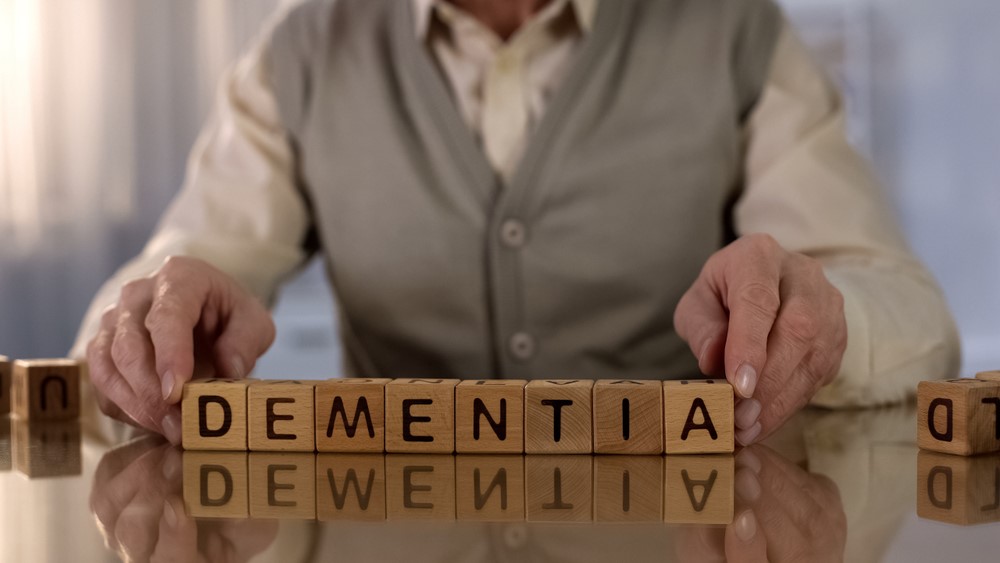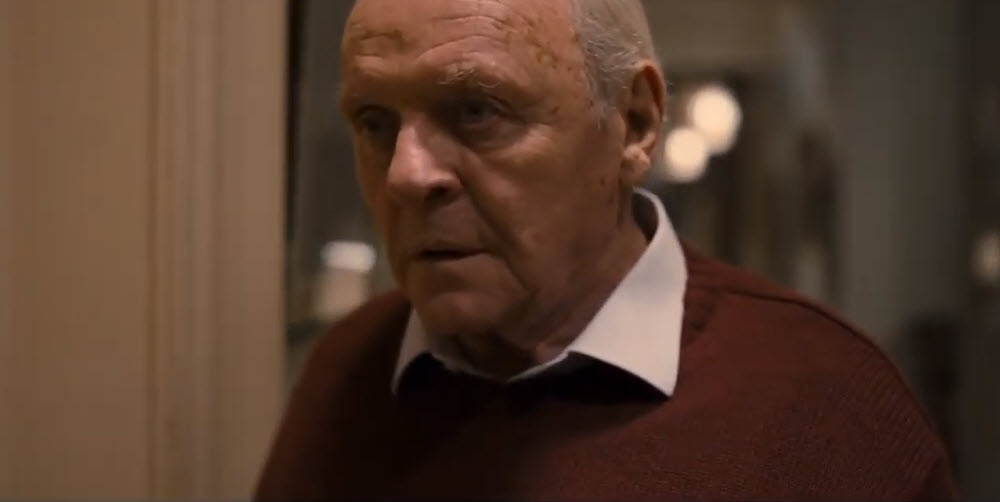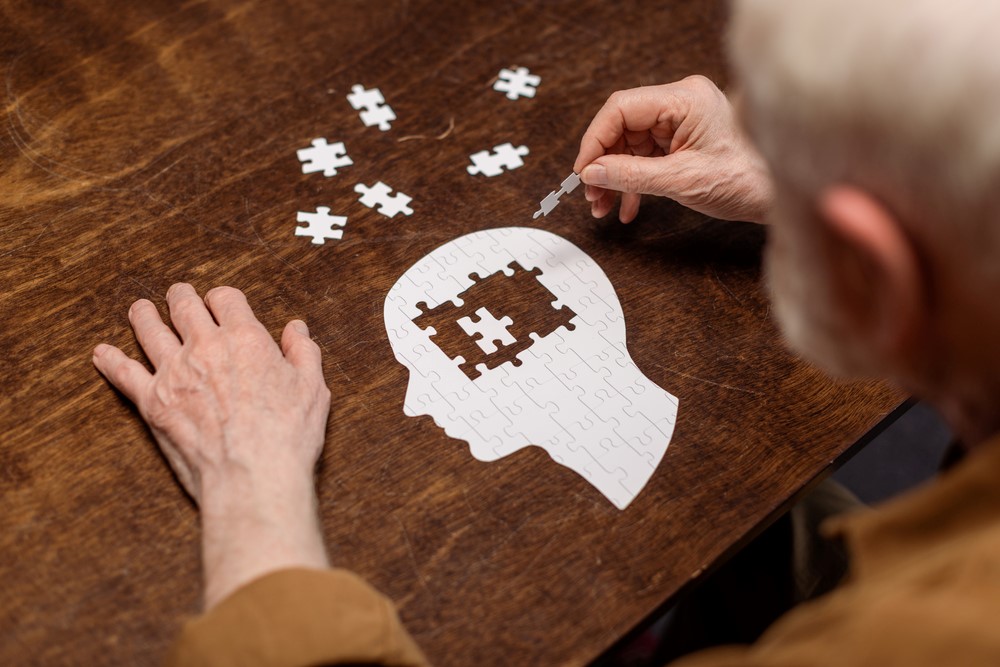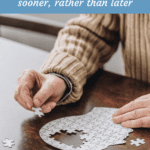
Dementia can be a terrifying disease, both for the person suffering it and their family members. Learning about dementia might seem like a scary idea, as you’re finding out about the worst case scenarios, including the way that your loved one might be confused, overwhelmed, or even aggressive.
This fear is why many of us don’t want to think or talk about dementia.
Instead, we often ignore the topic until we are faced with it in our own family. And, worse still, many of us learn the stages of dementia only as a loved one passes through them.
This isn’t good at all. We end up learning about the condition in the midst of a crisis situation, where we are overwhelmed and perhaps confused. It’s must better to step back and learn the important things early on.
That’s why, in this post, we’re taking a close look at how learning about dementia can help you, along with ways you can do so.
How Learning About Dementia Helps
You Know What to Expect
Learning about dementia gives you a sense of what might happen in the future.
Doing so might feel a little overwhelming at first. After all, most of us don’t want to learn that our family member might not recognize us or that they’ll react in unexpected and frightening ways.
Here’s the thing though.
If your family member has dementia, you’re going to learn the difficult parts sooner or later – as they unfold in front of you. And, even if you don’t know anyone with dementia now, there’s a good chance that someone in your family will develop the condition in the future.
Learning about dementia might be difficult and overwhelming in the beginning but doing so when everything is happening is so much worse. The learning also helps you confront unexpected situations, like how people with dementia don’t always know that they have the condition or the relationship between dementia and death.
You Can Learn How To Cope and Find Tools
Being prepared is powerful. If you know what’s involved in dementia, you can start to prepare yourself mentally and look for tools. Doing so can make your more resilient, while also making it is easier to find the good moments.
In fact, some of the resources that we highlight later in this post focus on ways to improve your experience as a caregiver, while also helping the person you’re supporting.
Other resources focus on showing you how to deal with challenging situations. For example, talking to someone with dementia requires different techniques, especially as the disease progresses. You can’t simply rely on logic in the way that you could before.
Logic simply won’t work.
Knowledge Helps You to Make Wise Decisions

The more you know, the better equipped you are to make good decisions. For example, you will have a better idea of…
- When it may be time to look at a full-time carer or moving them to a nursing home
- How to respond to accusations and paranoia
- What is involved in dementia evaluation and diagnosis
- Ways to respond to challenging situations, like incontinence and wandering
- Where to find support and resources
Thinking about nursing homes or full-time care is an especially important part of this equation. There’s often this strong desire to keep your aging parents at home and safe. You might feel like you can care for them much better than anyone else can. To an extent, this is true.
Yet, in practice, dementia progresses far beyond what most caregivers can handle. And, more than this, the care you provide isn’t always the best option for your family member.
If you know what to expect from the beginning and start your research early, it becomes much easier to identify when it is time to look at other options, along with what these are.
It Can Feel Less Personal
Some resources give you a type of insiders view of dementia. You don’t just learn what to expect, but you also get a sense of what dementia can feel like for the person suffering it.
This helps you to understand more about why dementia patients behave the way they do.
This makes it easier to support them without judgment, while also making it easier to not take their reactions personally.
How To Learn About Dementia
Finding out more about dementia isn’t difficult. There are many books out there, not to mention forums, guides, and countless blog posts. But, as surprising as it might seem,
Dementia in Films
Recent years have seen dementia being covered in a few different films, including Still Alice, The Father, and Supernova, along with older films like The Notebook.
Movies can be a useful tool, as each one only takes a few hours to watch and provides you not just with knowledge, but also with emotional connection. However, you also need to be cautious, as films will always be limited in how they portray dementia.
The Father

It’s not surprising that The Father has received so many positive reviews. The film is well-written, directed, and acted. It is also quite an experience – different than most other films out there.
The film focuses on the relationship between Anthony and his daughter Ann, but it isn’t linear like most other movies. Instead, events sometimes seem out-of-order, they sometimes repeat in slightly different ways, and time jumps around.
It’s also not clear what is ‘real’ and what isn’t.
All of this is intentional, as the film is designed to give the audience a similar experience to the main character.
For more information about this film, check out our The Father review. Or, you can see the movie yourself by renting it on Amazon.
Still Alice
Still Alice deals with a woman with young-onset Alzheimer’s disease, focusing on the effects that the condition has on her and the rest of her family. Part of the film looks at the way that Alice uses a variety of techniques to try and stay functional for as long as possible.
Many aspects of the film are spot-on in their portrayal, making this an excellent one to watch.
Some people may prefer Still Alice to The Father, as Still Alice is much easier to follow.
However, because Alice is younger than Anthony, the film doesn’t have the same parent-child-caregiver dynamic and may be less relevant to caregivers.
The Notebook
While many people love The Notebook, it’s not a very realistic depiction of dementia. For one thing, Allie switches in and out of lucidity much faster than makes sense, and the transitions are surprisingly clean-cut.
Alzheimer’s patients do have some moments where they’re more lucid than others. But, you won’t see the sudden off-and-on lucidity that features in The Notebook.
The movie also seems to play around with the stages of dementia. At times, Allie’s ability to understand the world is much worse than it should have been at that stage of the disease.
Honestly, this particular film is likely to leave caregivers more confused about dementia than anything else.
Books for Caregivers

Movies are a fantastic starting place, if you stick to one that is realistic in its treatment of dementia. They give you some powerful insights into what dementia can look like and even feel like, along with an emotional connection to the characters. The experience might make it easier to be compassionate, to see and to understand what your loved one is going through.
However, movies are limited too.
Even the best ones take creative license in some areas to create a compelling story. Movies also just have a two-hour window to work with, so they leave out many of the nitty gritty day-to-day aspects of dementia.
To understand more, you need to look at other sources.
Books written for caregivers of dementia patients are often perfect, as these are often focused on solutions. So, they don’t just look at what may happen, but also how you can work with and support a family member with dementia.
The 36-Hour Day
The 36-Hour Day is a highly recommended choice. This book is a best-seller in the aging parents field, with more than 6 million copies sold throughout the world. It covers many interesting topics, including:
- Getting medical help
- Common behavioral symptoms
- How dementia affects independent living
- Challenges with daily care
- Medical problems
There are even sections on finding outside help and how to support your own needs.
Most reviewers are full of praise about the book. I have a copy myself and find it a fascinating read.
The main complaint is that the book strongly focuses on what you need to do, with less emphasis on how to actually manage the process emotionally. While there are some sections on self-care, the information tends to be basic and mightn’t be enough for some caregivers.
Creating Moments of Joy Along the Alzheimer’s Journey
As the name suggests, this book approaches dementia from an entirely different direction. The goal is to change your focus away from caregiving challenges and towards joy instead – both for you and for the person you’re caring for.
This idea might sound absurd at first. After all, dementia care can be overwhelmingly difficult, right?
Even so, changing your perspective can be surprisingly powerful. As humans, much of our suffering doesn’t come from what’s happening around us. We suffer our perceptions and expectations instead. This is why two people can experience the same situation very differently.
The book doesn’t pretend that dementia care is easy, not at all. It still acknowledges the rough bits, along with the fact that caregivers will struggle and make mistakes. It also provides amazing insights into how you can make the experience so much better.
Plus, the writing is easy to read and enjoyable. This is perfect if you don’t have much time.
The Caregiver’s Guide to Dementia
This is a second book that focuses on the practical side of dementia caregiving, including important topics like behavioral changes, definitions of what dementia is and what you can expect, questions to ask health professionals, and financial planning.
There’s also a strong focus on the caregiver. In fact, each chapter ends by bringing the discussion back to how you are doing as a caregiver.
While the book isn’t as well-known as the 36-Hour Day, it can be more helpful when your family member is in the early stages of dementia and doesn’t overwhelm you with too much information too quickly.
Other Books
There are plenty of other books to try as well, each with their own strengths and weaknesses. Some of our favorites include:
- Alzheimer’s Through the Stages: A Caregivers Guide. While the other books talk about dementia, this one narrows the focus to only look at Alzheimer’s disease. By doing so, it provides you with clear information about what you can expect, along with how to support both yourself and your family member along the way.
- The Conscious Caregiver: A Mindful Approach to Caring for Your Loved One Without Losing Yourself. This book is a little different. It doesn’t focus on dementia specifically. Instead, it aims to help you be more mindful and use those tools as a caregiver. The strategies are very relevant to dementia caregiving.
Forums and Blogs
Finally, you can look online. Many blogs talk extensively about dementia care. Healthline recently featured a list of some of the best Alzheimer’s disease blogs, which can be a fantastic starting point.
Alzheimers.net is another useful resource. This site offers plenty of information about Alzheimer’s disease, along with a blog. The blog isn’t extensive and is only updated every so often, but it’s still a useful resource.
Caregiving forums are fantastic places too.
These provide you with informal advice, often from other caregivers. The information can often be more helpful than talking to an expert, as you’re talking to people who are going through similar experiences to you. They’ll often be able to provide personal advice.
The discussion boards at alzconnected.org are one of your best options for Alzheimer’s specific discussion. You can also look at the Aging Care forum. The Aging Care site covers all aspects of caring for the elderly, not just dementia. However, their forums are well populated and there are plenty of threads about dementia, so you’re certain to find good information.
Feeling Overwhelmed?
Check out our Caregiving Consulting service for personalized support and guidance.


Leave a Reply